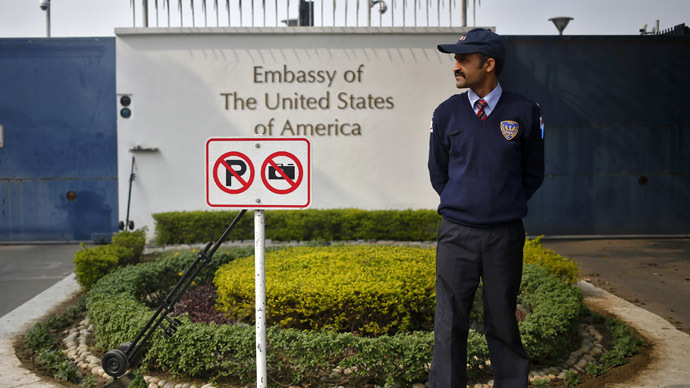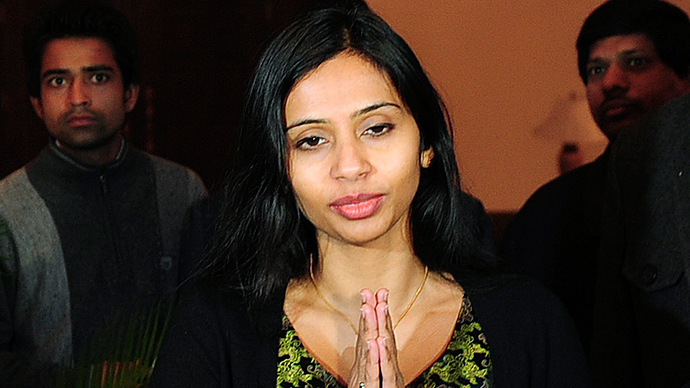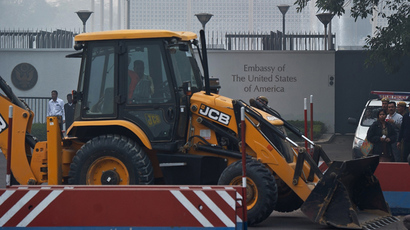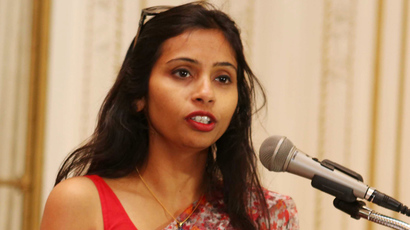India accuses US Embassy school of tax evasion as diplomatic standoff heightens

Indian officials claim that a number of American teachers working at a US Embassy school have committed tax evasions and committed visa fraud, the latest development in a growing diplomatic row that began with the arrest of an Indian diplomat in New York.
The American Embassy School (AES) is a well-known school in India that serves US diplomats’ children and the families of other English speaking officials. The school is located on US-owned land just next to the US Embassy and has a swimming pool, athletic facilities, and tennis courts, among other luxuries. Students must also be able to afford the annual $20,000 tuition, a fee that rivals the most prestigious schools in the US northeast.
Indian officials now claim that a handout the AES gives to female teachers whose husbands are also employed by the AES is a violation of Indian law.
“The female spouse should not state that she will be working,” the document states, as quoted by the New York Times. It instructs the women to list their occupation as “housewife” on visa applications while being careful to note that “no sexism is intended on our part.”
Syed Akbaruddin, a spokesman for India’s Ministry of External Affairs, told the Times that the directions were “clearly a violation of tax law,” while another official speculated that as many as 16 teachers are employed illegally.
This is the latest in a series of escalating provocations since Indian diplomat Devyani Khobragade was arrested in New York City one month ago. Khobragade was charged with visa fraud in connection to the wages she claimed to be paying her housekeeper, Sangeeta Richard. Khobragade was subjected to a cavity search, infuriating Indian officials and media commentators.

Since then, Indian police have removed the security barrier around the US Embassy and have begun citing American officials for minor traffic violations. The US State Department released a statement Wednesday indicating that William J. Burns, the deputy secretary of state, had hosted Indian ambassador S. Jaishankar for a meeting, where the two discussed “the variety of issues raised by the Ministry of External affairs via diplomatic note, including alleged issues with the American Embassy School.”
A 1973 agreement between the two countries stipulates that only a small number of American teachers are eligible for tax-free status and, if that number is exceeded, those teachers who come later are not eligible for tax exemption. The handout makes this condition clear by noting, “So if you are a teaching couple we usually have the male spouse apply for the ‘employment’ visa and the female spouse be noted as ‘housewife’ on the visa application.”
The Times reported that approximately one-third of the 1,500 students at the AES are American, with 20 percent hailing from South Korea and the rest coming from dozens of other countries. The paper goes on to note that tax laws are enforced selectively and Indian officials have implied they will begin investigating the legal status of American teachers located throughout the country.














